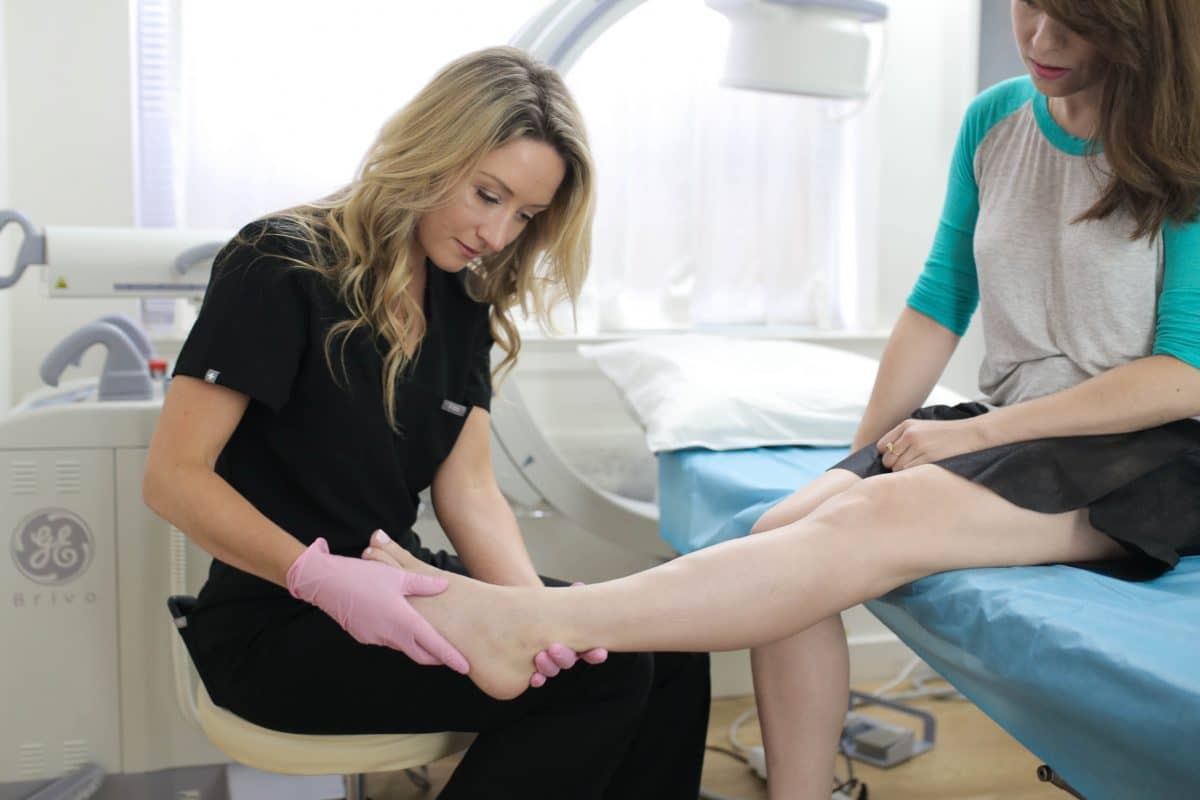Vein Clinics of America: When do you need to visit a vein clinic?
Ageing gives all of us certain characteristic features – grey hair, sun spots and blemishes. While some of need to be ignored (or covered up), some blemishes can actually be fixed. If you have blemishes that spread out in a spider-like fashion, are bluish or purplish in color, you probably have spider veins. Which means – yes, it is time to visit a vein clinic. You might also notice that the veins on your legs bulge out slightly, and appear like thick, twisted ropes. These veins are called varicose veins, which also need expert care from a vein doctor.
With or without varicose and spider veins, you may experience certain symptoms, that you may think is a normal part of the ageing process. Certain leg symptoms, however, are actually signs of a veincondition called chronic venous insufficiency. These include:
- Feet the feel heavy and sore at the end of the day
- Swollen ankles, especially after you sit or stand for long periods of time
- Restless legs – sudden leg cramps that make you want to shake your legs (literally!)
- Feeling tired or fatigued most of the time
- Itchy, burning skin over your leg veins.
If you have one or more of the above symptoms, you should visit a vein doctor to find out if you have chronic venous insufficiency.

Vein clinics of America: Cost and types of vein treatment
Chronic venous insufficiency occurs when you have venous reflux in your main leg veins. “Venous reflux” is when the blood does not flow properly in the direction that it is supposed to – from the legs to the heart. This usually occurs when the valves in the veins – which act like gates – become leaky and inefficient. This causes blood to back up, and pool in the legs. The pressure from the excess blood forces the formation of new veins, which appear on the surface as varicose veins and spider veins. So, if you want to get rid of varicose veins and spider veins completely, you need to tackle the problem at the source. This means shutting down the main veins of the leg. When this is done, the blood will find other veins to get to the heart, which have more efficient valves.
A decade ago, shutting down leg veins meant removing them completely – through surgery. Thankfully, with the advent of minimally invasive procedures today, the veins need not be removed completely. The veins are sealed off so that blood can no longer flow through them. Over time, the unused veins shrivel and get absorbed into the body. The most commonly used minimally invasive procedures to shut down the main veins are:
Radiofrequency ablation (RFA): This requires a numbing injection, after which a tiny incision is made over the vein. A radiofrequency catheter is inserted into the vein, and heat is delivered through the catheter. This causes the vein to melt and the walls fuse together.
Endovenous laser ablation (EVLA): The procedure is the same as RFA, but a laser fiber is used to generate heat instead of a radiofrequency probe. Laser can be more intense, so the procedure can be more slightly painful than RFA.
VenaSeal: A very recent technique, VenaSeal is quicker and more comfortable than RFA. This technique skips the numbing and incision – it just involves a single injection of medicated glue into the vein. The glue spreads over the vein walls and causes them to stick together.
While these techniques can cost a few thousand dollars, they are usually covered by insurance.
Once the main vein is sealed, the vein doctor may treat your residual spider veins, and smaller varicose veins, using the following procedures:
Sclerotherapy: A medicated solution called sclerosant is injected into your veins. The sclerosant irritates the vein walls, and makes them stick together. This only works for small veins like spider veins. This could cost around $700 – $800 per session.
Varithena: Instead of sclerosant, medicated foam is used, which spreads over a larger area. So this can be used for slightly larger residual veins.

How can I find excellent Vein Clinics near me in America?
The easiest way to locate a good vein clinic near you is to search online! When you do that, you will know that the clinic is great if it has these:
Trained phlebologists: Phlebologists (vein doctors) are board-certified physicians who have had special training in managing vein diseases. Vein doctors have more skill and expertise than the average physician, and will give you better results.
Latest technology and equipment: An advanced vein clinic will have the resources to diagnose all vein conditions, and to perform minimally invasive procedures. Check if they offer cutting-edge treatment, such as VenaSeal.
Transparency: Does the vein clinic have an informative website? Look up patient reviews, and the bios of the vein doctors. Some clinics also have before/after images that showcase their work.
The Vein Treatment Clinic is premier vein center that has multiple branches across America. We have on board the nation’s most acclaimed vein specialists, who are skilled, experienced, and compassionate. VTC focuses on minimally invasive treatment solutions for vein conditions.
To learn more about VTC and the services offered, you can talk to our expert staff. Book an appointment online, or call (844) 690-1788.







